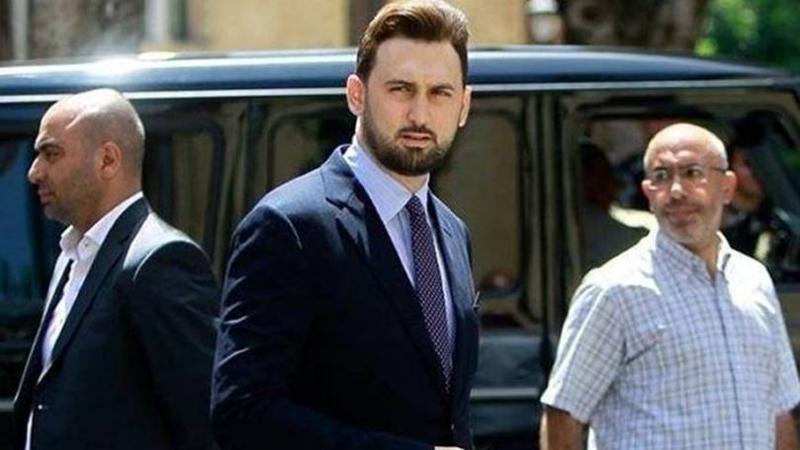With just a few weeks until the country enters the presidential election season, and ahead of the anticipated initial session dates likely scheduled for early September, the situation remains unclear, hanging on the developments of regional and international events. The ongoing war in Ukraine has pushed Lebanon's situation to the sidelines, as noted by French ambassador Anne Grillo, who stated that "Lebanon is no longer a priority internationally." This context may be contributing to the Lebanese confusion over how to handle the presidential election, with fears that a potential vacancy could be severely harmful, in every sense of the word.
It seems this ambiguity is delaying the presidency's timing and keeping it bound to the stillness that envelops the positions of most political powers. When they choose to approach the election, they do so with considerable caution, hesitance, and general rhetoric. The "Democratic Gathering" is no exception to this rule, although its stance could shift if it decides to recreate the voting scene that favoured Nabih Berri as President of the Parliament, joining the front to support Sleiman Frangieh's candidacy.
Timur Jumblatt, the head of the group, does not hesitate to point out that they have yet to discuss the presidential election, and he prefers not to engage in the game of names, speculations, and majority-minority calculations. Conversely, he emphasizes that the most important criterion for this election, which transcends the criteria of name and political affiliation, is that it should be difficult, if not impossible, to select a completely independent Maronite who is an institutional figure capable of rescuing the country from its current collapse through a practical rescue plan that can restore international confidence.
Previously, the head of the "Progressive Socialist Party" nominated Sleiman Frangieh for the presidency when the head of the "Future Movement," Saad Hariri, decided to break the deadlock imposed by the March 8 and March 14 alignments. However, he later announced before the elections that he would not vote for either Bassil or Frangieh. At present, Jumblatt's presidential card remains hidden, which may be due to the nature of the developing events beyond the borders, rendering Lebanon one of the bargaining chips.
Timur Jumblatt acknowledges a delicate regional movement that could accelerate the pace of the presidential election in the coming weeks. The Egyptians are seeking an active role in this context, and it is no secret that Army Commander Joseph Aoun is their preferred candidate. It is likely that the UN Climate Change Conference expected to take place in November in Sharm el-Sheikh could be an opportunity to activate international dialogue, particularly between the US and Europe, with Egyptian effort directed at reaching an agreement concerning the Lebanese file. However, this matter remains mere speculation or attempts that may not succeed.
Before that, it does not seem that the international conditions are conducive to finalizing the presidential election, while the Lebanese forces are unable to overcome their disagreements and divisions to hold the elections on time without any delays. In this regard, Timur Jumblatt does not hesitate to express his dissatisfaction with the state of the opposition, which suffers from significant divisions, differences, and "populism." He reveals that the deputies of the "Democratic Gathering" began, right after the parliamentary elections, a campaign of communication with various opposing parliamentary blocs, starting with the "Forces," "Kataeb," independents, and even the new "change" deputies, aiming to form a unifying framework to help tackle pressing issues and vital financial and economic files. However, the attempt has yet to yield any encouraging results to build upon.
Jumblatt recalls the scene of voting to nominate Ghassan Skaf for the deputy presidency of the Parliament, questioning how, if Skaf's candidacy was not free from differences, it would be possible to convince all opposing deputies to reach an agreement on a joint candidate they could seriously contest, away from political games. Therefore, Jumblatt does not deny that there are many obstacles to the idea of opposition deputies agreeing on a single candidate. Nonetheless, he points out that what matters most is to move towards electing a president committed to institutional work, who may be able to revive institutions that have been completely destroyed.
He acknowledges that naming Nawaf Salam for the premiership is not free from "populism," especially given public disillusionment with the performance of the caretaker government. Thus, it was necessary to commission a new figure, particularly since Salam is a respectable and institutional character, stressing that the "Democratic Gathering" will not participate in any government similar to the caretaker government, in the sense of being a mere witness and not a rescue government. He disclosed that the "Gathering" informed Mikati during non-binding consultations that it would be out of the government, confirming that the naming of Walid Assaf in the draft raised to the president was not based on communication with the "Gathering."
In a different context, he notes that the meeting between party leader Walid Jumblatt and Deputy Ghassan Atallah is limited to calming the atmosphere in the mountain after the tensions from the parliamentary elections and emphasizing that political disagreements should not reflect any form of social or public tension, as this serves the interest of the mountain and strengthens stability.




